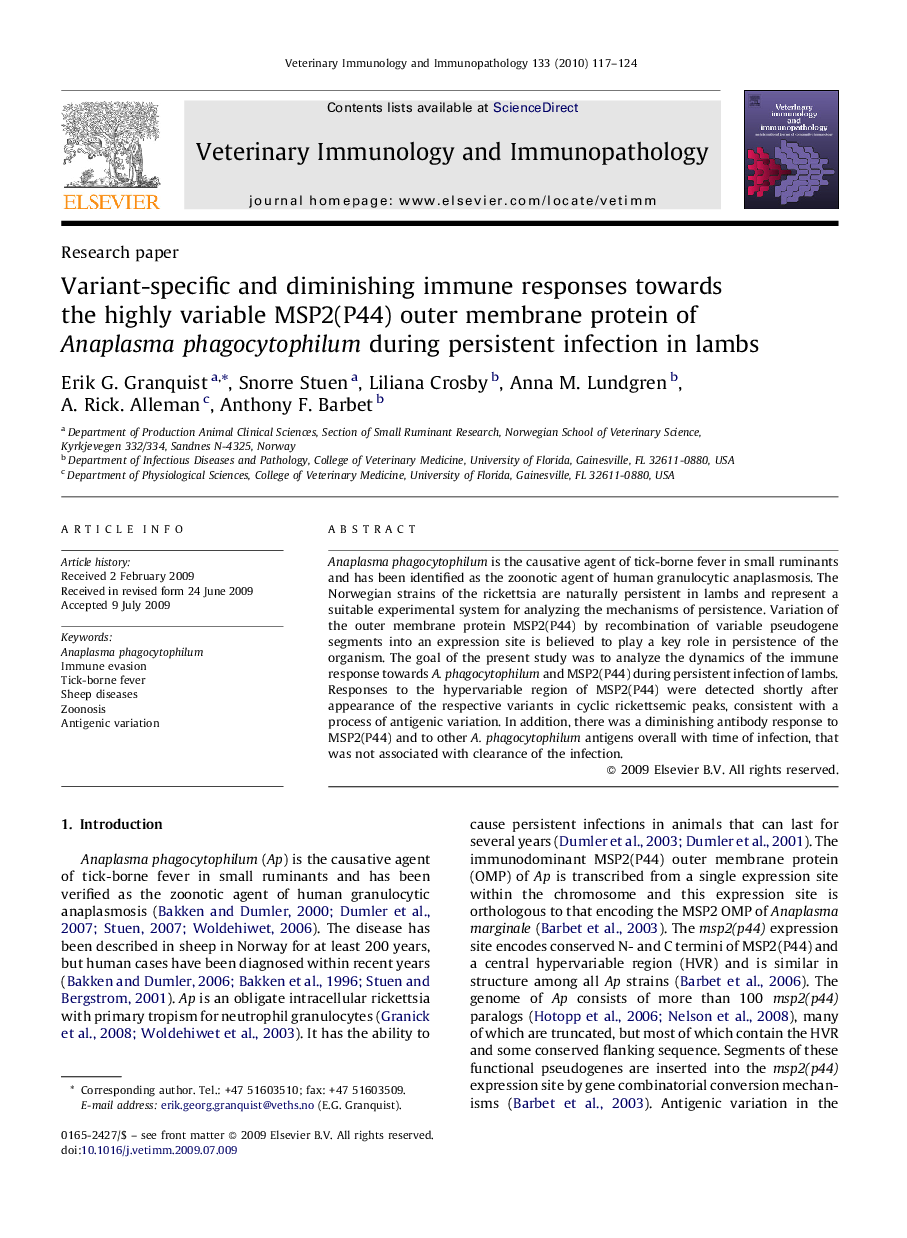| Article ID | Journal | Published Year | Pages | File Type |
|---|---|---|---|---|
| 2462485 | Veterinary Immunology and Immunopathology | 2010 | 8 Pages |
Anaplasma phagocytophilum is the causative agent of tick-borne fever in small ruminants and has been identified as the zoonotic agent of human granulocytic anaplasmosis. The Norwegian strains of the rickettsia are naturally persistent in lambs and represent a suitable experimental system for analyzing the mechanisms of persistence. Variation of the outer membrane protein MSP2(P44) by recombination of variable pseudogene segments into an expression site is believed to play a key role in persistence of the organism. The goal of the present study was to analyze the dynamics of the immune response towards A. phagocytophilum and MSP2(P44) during persistent infection of lambs. Responses to the hypervariable region of MSP2(P44) were detected shortly after appearance of the respective variants in cyclic rickettsemic peaks, consistent with a process of antigenic variation. In addition, there was a diminishing antibody response to MSP2(P44) and to other A. phagocytophilum antigens overall with time of infection, that was not associated with clearance of the infection.
